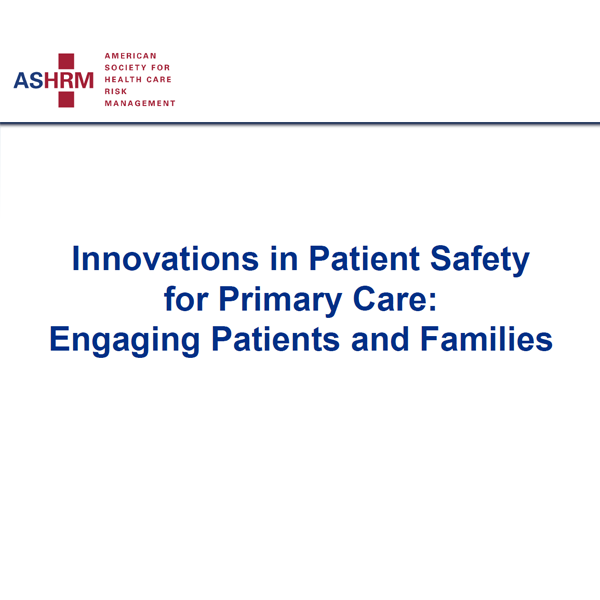Innovations in Patient Safety for Primary Care: Engaging Patients and Families
ASHRM On-Demand Webinar
Member: $39.00
CE Credit: 1
Domain: Clinical Patient Safety
Level: Practitioner
This program will provide an overview of the challenges to patient safety in primary care settings and strategies to overcome them through enhancing engagement of clinical teams with patients and families.
This program aims to describe the emerging evidence of breakdowns in patient safety within primary care settings. Threats to patient safety in primary care include breakdowns in communication, medication administration, prescribing, and adherence, fragmentation of the health care system, and pitfalls in the diagnostic process leading to diagnostic errors. Patient and family engagement is one approach that has been demonstrated to be effective at improving quality and safety within the hospital setting. During this webinar, the speaker will provide an overview of strategies for primary care practices and clinicians to adopt to engage patients in ways to improve patient safety. Strategies from the Agency for Healthcare Research and Quality's Guide to Improving Patient Safety in Primary Care Settings including those aiming to overcome breakdowns in communication, diagnostic errors, and those to improve medication safety will be discussed using case studies. Implementation strategies and experiences of primary care practices from around the U.S. will be described.
Objectives:
- • Describe the threats to patient safety in primary care settings.
- • Discuss interventions to engage patients and families in primary care that lead to improved patient safety.
- • Describe implementation challenges and successes from a National field test of interventions.
Presenter:
Kelly M. Smith, PhD
Question? Contact ASHRM@aha.org



